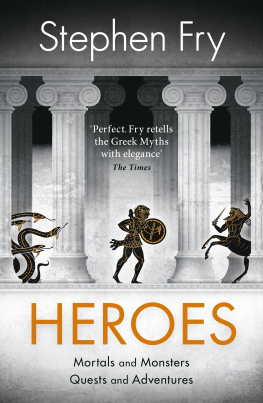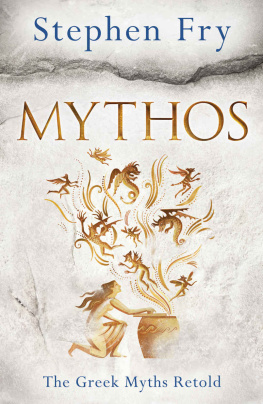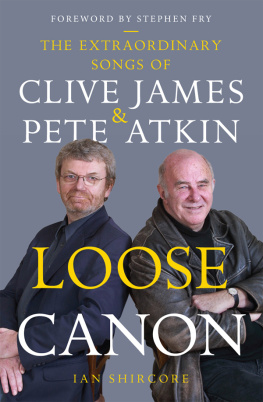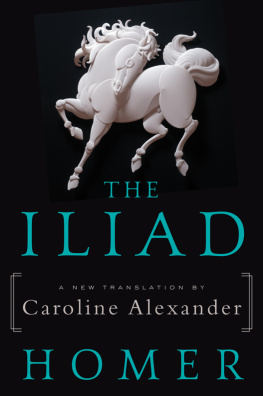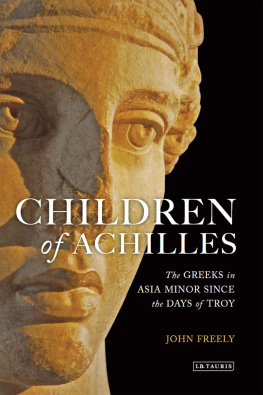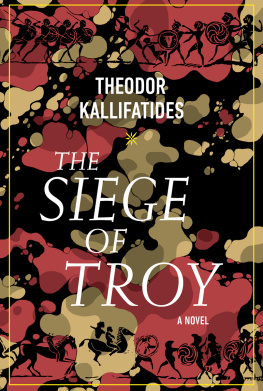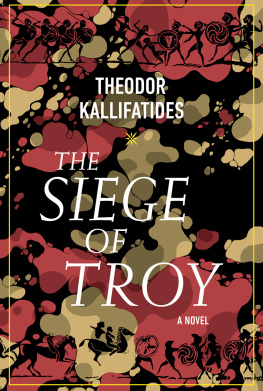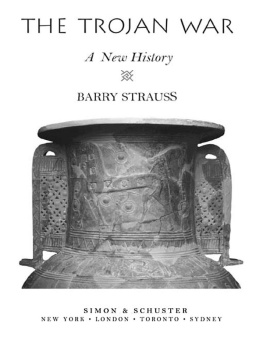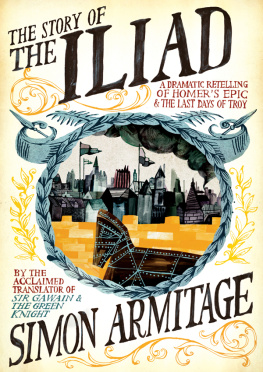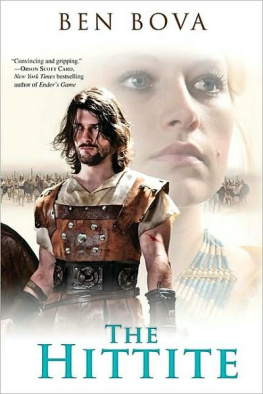Stephen Fry
TROY

Acknowledgements
Without a loving and patient husband, without as perfect a personal assister as ever existed, without a wonderful literary agent, without a stunningly gifted and passionate editor, without a copy-editor who never misses anything, without an audiobook producer of the very first rank, without a publishing house that enthuses and encourages, without all these, this book could never have been written.
So thank you Elliott Spencer, Jo Crocker, Anthony Goff, Jillian Taylor, Kit Shepherd, Roy McMillan and Louise Moore.
PENGUIN BOOKS
UK | USA | Canada | Ireland | Australia
India | New Zealand | South Africa
Penguin Books is part of the Penguin Random House group of companies whose addresses can be found at global.penguinrandomhouse.com.

First published by Michael Joseph in 2020
Copyright Stephen Fry, 2020
The moral right of the author has been asserted
Illustration by Sarah Young
ISBN: 978-1-405-94448-9
This ebook is copyright material and must not be copied, reproduced, transferred, distributed, leased, licensed or publicly performed or used in any way except as specifically permitted in writing by the publishers, as allowed under the terms and conditions under which it was purchased or as strictly permitted by applicable copyright law. Any unauthorized distribution or use of this text may be a direct infringement of the authors and publishers rights and those responsible may be liable in law accordingly.
Introductory Note
The birth and rise of gods and humans is the subject of my book Mythos, whose successor Heroes covers the great feats, quests and adventures of mortal heroes such as Perseus, Heracles, Jason and Theseus. You do not have to know those books to enjoy this one; when I have judged it useful, I provide footnote references pointing to where fuller details of incidents and characters can be found in the previous two volumes, but no pre-existing knowledge of the Greek mythological world is presumed or required for you to embark on Troy. As I remind you from time to time, especially early on in the book, do not think for a minute that you have to remember all those names, places and familial interrelationships. To give background, I do describe the founding of many different dynasties and kingdoms; but I assure you that, when it comes to the main action, the different threads turn from a tangle into a tapestry. A two-part Appendix at the back of the book addresses the issue of how much of what follows is history and how much myth.

It Fell from Heaven
Troy. The most marvellous kingdom in all the world. The Jewel of the Aegean. Glittering Ilium, the city that rose and fell not once but twice. Gatekeeper of traffic in and out of the barbarous east. Kingdom of gold and horses. Fierce nurse of prophets, princes, heroes, warriors and poets. Under the protection of ARES, ARTEMIS, APOLLO and APHRODITE she stood for years as the paragon of all that can be achieved in the arts of war and peace, trade and treaty, love and art, statecraft, piety and civil harmony. When she fell, a hole opened in the human world that may never be filled, save in memory. Poets must sing the story over and over again, passing it from generation to generation, lest in losing Troy we lose a part of ourselves.
To understand Troys end we must understand her beginning. The background to our story has many twists and turns. A host of place names, personalities and families enter and exit. It is not necessary to remember every name, every relationship of blood and marriage, every kingdom and province. The story emerges and the important names will, I promise, stick.
All things, Troy included, begin and end with ZEUS , the King of the Gods, Ruler of Olympus, Lord of Thunder, Cloud-Gatherer and Bringer of Storms.
Long, long ago, almost before the dawn of mortal history, Zeus consorted with Electra, a beautiful daughter of the Titan Atlas and the sea nymph Pleione. Electra bore Zeus a son, DARDANUS, who travelled throughout Greece and the islands of the Aegean searching for a place in which he could build and raise his own dynasty. He alighted at last on the Ionian coast. If you have never visited Ionia, you should know that it is the land east of the Aegean Sea which used to be called Asia Minor, but which we know as Turkish Anatolia. The great kingdoms of Phrygia and Lydia were there, but they were already occupied and ruled over, so it was in the north that Dardanus settled, occupying the peninsula that lies below the Hellespont, the straits into which Helle fell from the back of the golden ram. Years later JASON would sail through the Hellespont on his way to find the fleece of that ram. The lovestruck Leander would swim nightly across the Hellespont to be with Hero, his beloved.
The city Dardanus established was called with little imagination and less modesty Dardanus, while the whole kingdom took on the name Dardania.
The reign of Erichthonius was peaceful and prosperous. In the lee of Mount Ida his lands were fed by the waters of the benign river gods Simoeis and Scamander, who blessed the land of Dardania with great fertility. Erichthonius grew to become the richest man in the known world, famous for his three thousand mares and their countless foals. Boreas, the North Wind, took the form of a wild stallion and fathered a remarkable race of horses by the filly foals of Erichthoniuss herd. These colts were so agile and light of foot they could gallop through fields of corn without bending a stalk. So they say.
Horses and riches: always, when we talk of Troy, we find ourselves talking of wondrous horses and uncountable riches.
F OUNDATION
After the death of Erichthonius, his son TROS succeeded to the throne. Tros had a daughter, Cleopatra, and three sons, ILUS (named in honour of his great-uncle), Assaracus and GANYMEDE . The story of Prince Ganymede is well known. His beauty was so great that Zeus himself was seized by an overmastering passion for him. Taking the form of an eagle, the god swooped down and bore the boy up to Olympus, where he served as Zeuss beloved minion, companion and cupbearer. To compensate Tros for the loss of his son, Zeus sent HERMES to him, bearing the gift of two divine horses, so swift and light they could gallop over water. Tros was consoled by these magical animals and by Hermes assurance that Ganymede was now and by definition always would be immortal.
It was Ganymedes brother Prince Ilus who founded the new city that would be named Troy in Tross honour. He won a wrestling match at the Phrygian Games, the prize consisting of fifty youths and fifty maidens, but more importantly a cow. A very special cow that an oracle directed Ilus to use for the founding of a city.
Wherever the cow lies down, there shall you build.
If Ilus had heard the story of CADMUS and who had not? he would have known that Cadmus and Harmonia, acting in accordance with instructions from an oracle, had followed a cow, and waited for the animal to lie down as an indication of where they were to build what would become Thebes, the first of the great city states of Greece. It may seem to us that the practice of allowing cows to choose where a city should be built is arbitrary and bizarre, but perhaps a little reflection should tell us that it is not so strange after all. Where there is to be a city, there must also be plentiful sources of meat, milk, leather and cheese for its citizens. Not to mention strong draught animals oxen for ploughing fields and pulling carts. If a cow is taken enough by the amenities of a region to feel able to lie down, then it is worth paying attention. At any rate, Ilus was content to follow his prize heifer all the way north from Phrygia to the Troad, past the slopes of Mount Ida and onto the great plain of Dardania; and it was here, not far from where Iluss great-grandfathers first city of Dardanus had been built, that the heifer lay down at last.


